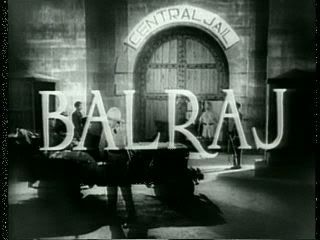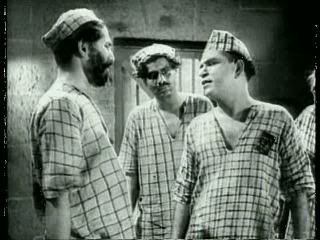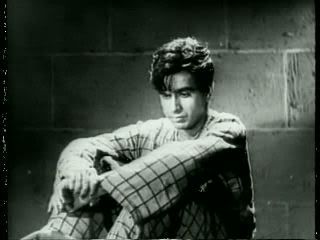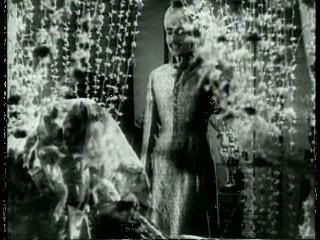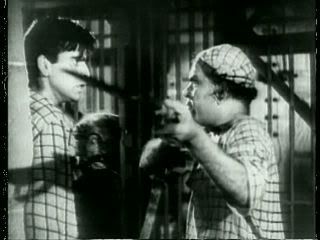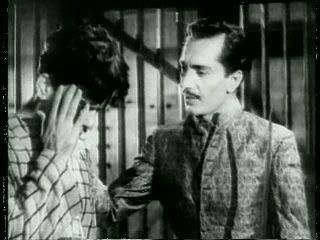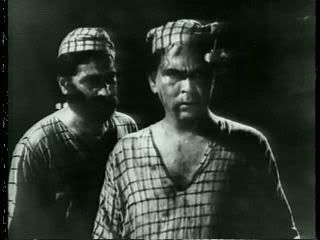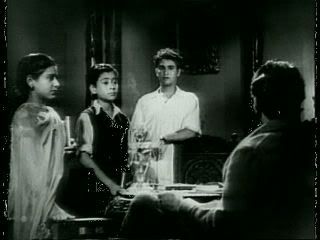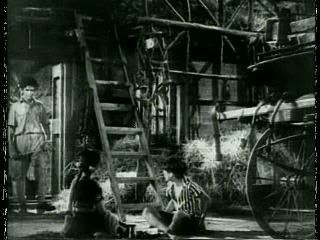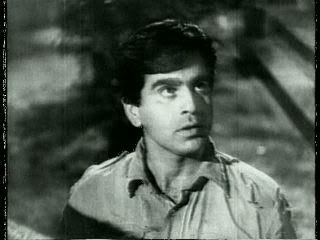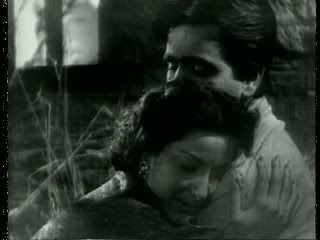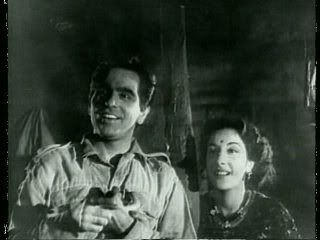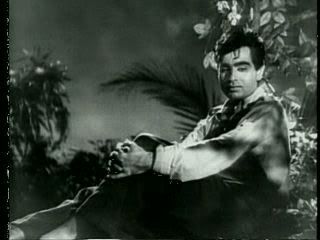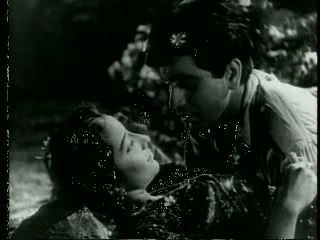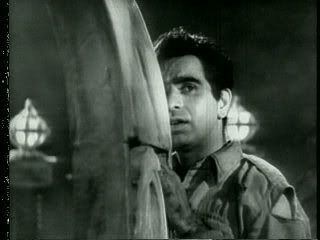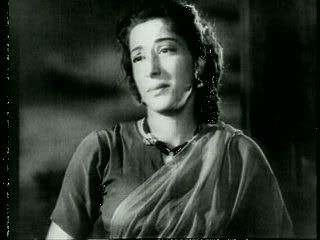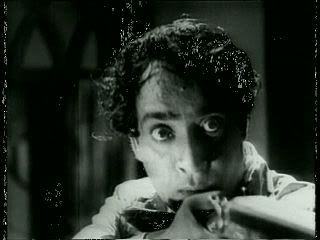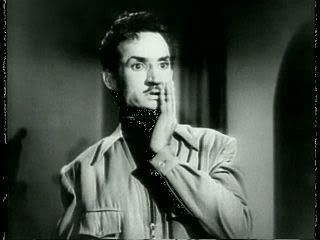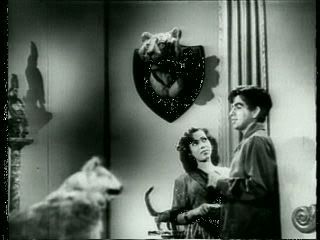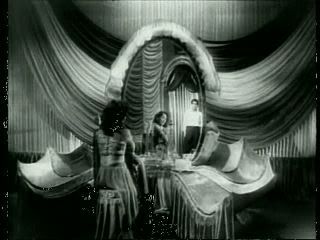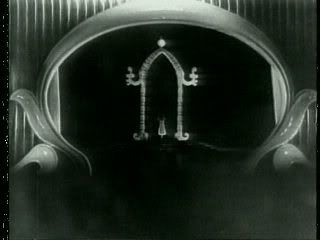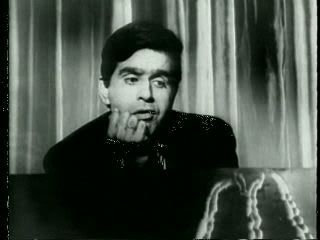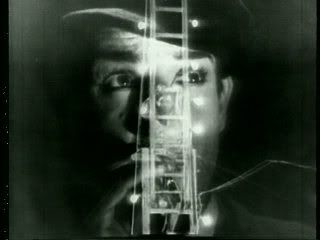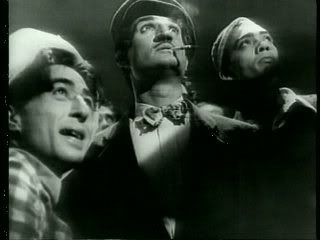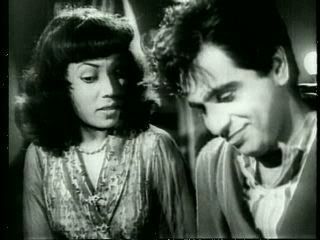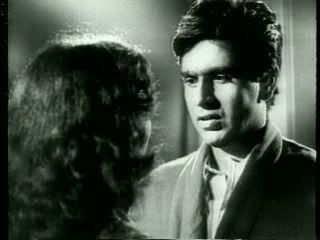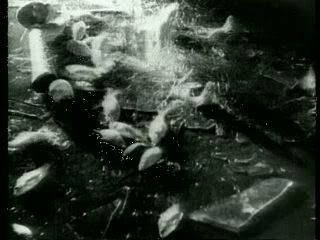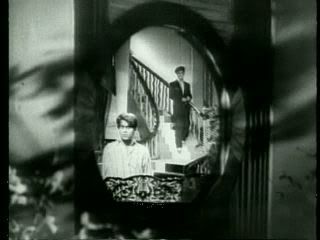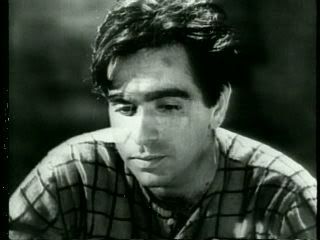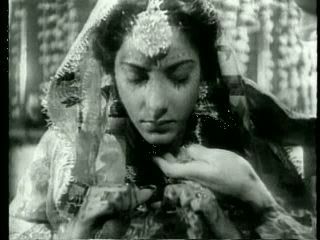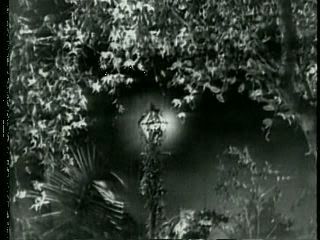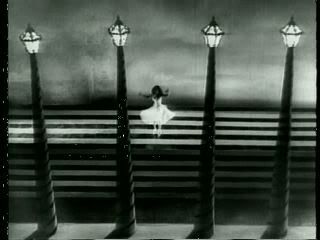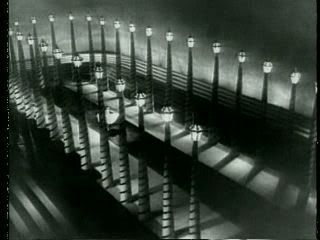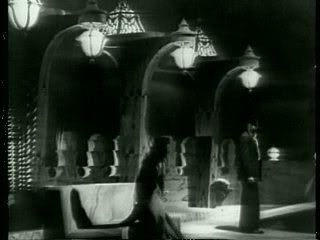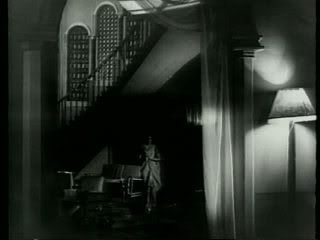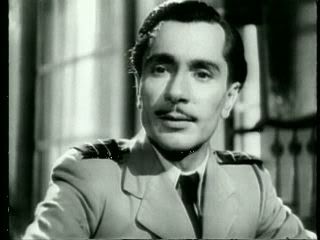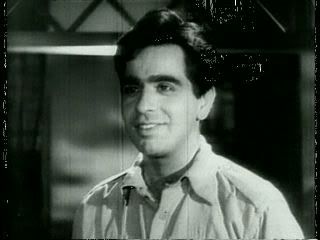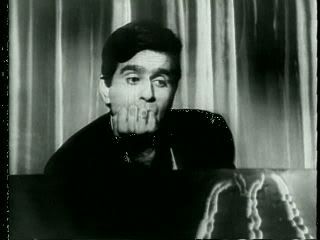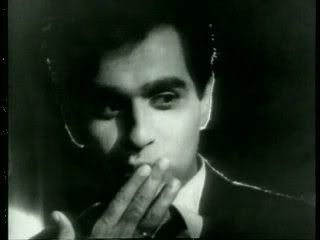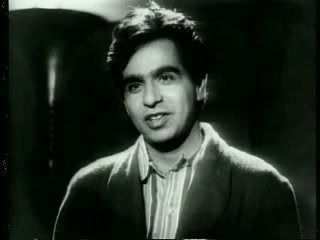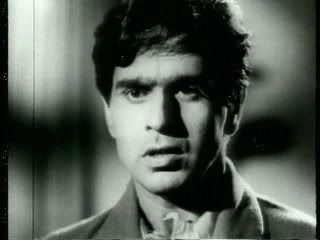Tonight, we will have a generous helping of Red Leicester:

Very cute:
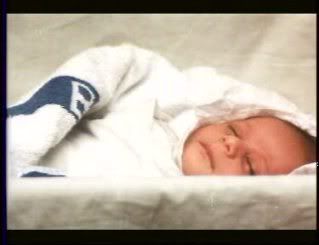
She looks very peaceful, possibly because she knows that her presence in this movie will now be limited to garlanded pictures:
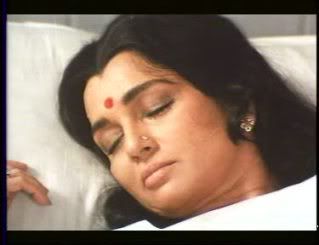
He isn't taking the news well:

It's a nice set, but a bit unexpected for a father-daughter bonding song:
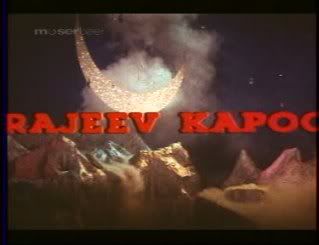
While we have been enjoying the song, years have passed. We return to the present with Kumar as a successful businessman with very strict rules as to when work finishes and his time with his daughter, Priya (Mandkini), starts. Alas, this particular evening when he comes home, his daughter is nowhere to be seen. Instead he finds a diary where she complains about his love stifling her and that therefore she is running away from home. After several hours of frantically searching for her, her father returns home, only to find her there, the entry in her diary was a scene from her college drama, and she had just been at the back where the cat had kittens. Her father is very happy to have her back, but a family friend, Gul, whom he had met earlier during his search, and who comes now to check how his friend is doing, points out, once Priya has retired to bed, that a daughter will leave her father's house one day, and that maybe he should tone down his love for his daughter a bit (well, if he took the advice we would have a much shorter movie)
He seems inordinately happy to be able to finish work:

It's not good news:
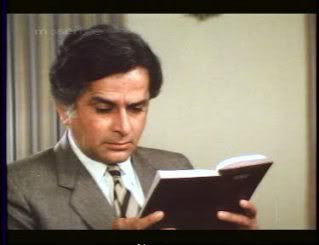
Did I do something wrong?

A manly heart to heart:

However, trouble is brewing across the seven oceans in a far away city. Ajay (Rajeev Kapoor), Gul's nephew and Priya's childhood friend, has fallen in love with Priya's photograph and decided to get married to her only. Before this can develop any further, we are back with Priya and Dad. It's dad's birthday and they don't celebrate it, because they don't celebrate Priya's birthday either, as that was the day her mother died. They do, however, go out for a meal at a hotel, and in the lobby they meet a lady called Krishna (Sharmila Tagore), who, much to Priya's surprise, knows that it is her father's birthday. She is also unmarried and as she studied at the same college as as Priya's parents, it is obvious (at least according the the logic of this movie's version of reality) that she was (and still is) in love with Priya's father. Priya, in a departure from standard movie spoilt daughter behaviour, actually goes to see Krishna and more or less directly asks her to marry her father. Alas, in the interest of the prolongation of the movie's plot, her father feels still bound by the promise he made to her mother and refuses to get married again.
I wonder where we are meant to be:

He has a really close relationship with her picture:
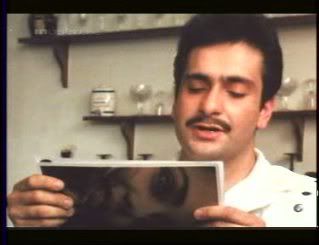
Does remaining single mean that horrible things happen to your hair?

If that is what happens if you stay single, maybe marriage isn't that bad:
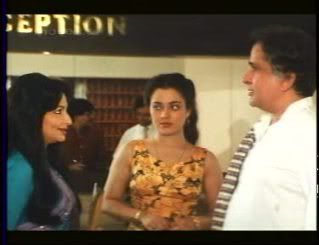
It's okay Dad; you don't have to marry all that hair:
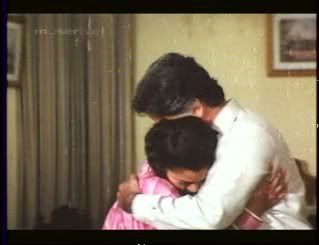
Meanwhile, other marital plans are afoot. Ajay and his mother have returned to India. He first (re) introduces himself to Kumar and then begins to stalk Priya in a manner which is meant to be romantic. Before she can set her friend's dog on him, he tells her that he is her childhood friend. They soon spend a lot of time together, swimming (in a scene which involves the sole and mercifully brief appearance of the comic relief), dancing and visiting her father's guesthouse somewhere in the middle of nowhere (apparently alone). The latter gives us our first romantic song and shortly afterwards Ajay's mother comes to Kumar to ask for Priya. After he is assured that they won't take Priya to London but will settle in India he reluctantly agrees to the marriage.
He might be less welcoming if he knew this young man's plans:
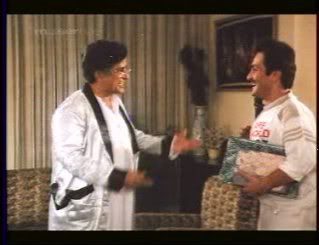
Don't worry, he just wants to play:

Both seem to prefer easily inflammable clothing:

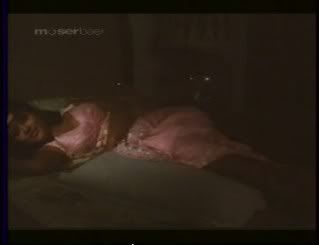
He doesn't look particularly thrilled:
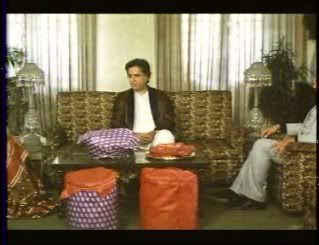
Priya is less than overjoyed when she hears the news. Yes, Ajay is a nice guy but she really doesn't want to leave her Dad and marry anyone. Some emotional-blackmail later, she agrees to the marriage, but as she says good-bye to her parental home during the next song, it becomes rather obvious that neither father nor daughter are terribly happy with this. Later that night her father phones (possibly not the brightest idea ever) to check whether she has calmed down and in the conversation with Ajay says that Ajay should give Priya so much love that she forgets her father. Priya is so horrified when she hears that she promptly runs to her father's house to be reassured that he still loves her, while back at Ajay's house, he finds himself blamed for mistreating his bride because why else would she have run away. Gul works out where she has most likely gone, but before he can go to fetch her, her father brings her back. Harmony is restored temporarily, though it is very clear the mother-in-law is less than impressed with her new daughter-in-law's behaviour.
Giving the bride away (first attempt)
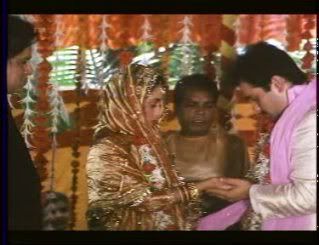
Don't worry, she will be back sooner than you think:
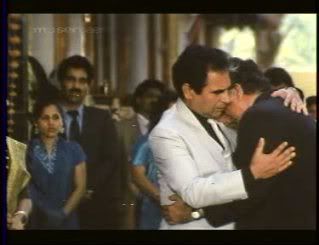
Giving the bride away (second attempt)
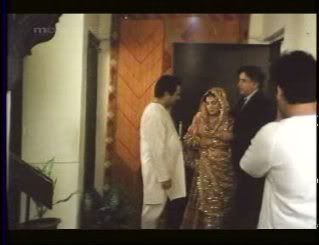
Before Priya's concern/obsession/love/dependency (please delete as appropriate) for her father causes more problems the newly weds go on honeymoon in Kashmir. This involves one romantic song, one unnecessary but apparently required fight scene with a gang of wandering rapists, lots of snow and some silly knitwear. All is well, until Ajay suggests settling down in Kashmir, which Priya won't agree to because she would be so far away from her Dad. Ajay is starting to get a bit irritated by her close bond with her father.
Being married means wearing your hair in a bun:
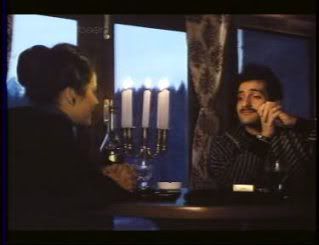
Howerver, it doesn't save you from bad-hat syndrome:

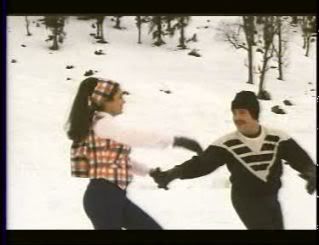
After they return from honeymoon, they first go to see Priya's father and Ajay is quite insistant that she spend some time with him. However, when his mother is unhappy about Priya's absence (as she rather wanted to show off her daughter-in-law to her lady friends) he says that Priya insisted that she stay with her father. Of course, this doesn't really endear Priya to her mother in law. The latter now decides that maybe it is time to go back to London, at leat until Priya has sorted out her priorities. Gul is not impressed by this idea (and I am coming slowly to the conclusion that he may well be the only completely sane person in the movie, and he isn't married) and points out that she promised Kumar that she wouldn't take his daughter abroad. Ajay's mother still goes and makes the suggestion to Kumar, but he doesn't take it very well and claims that he would die if didn't live close to his daughter. To make things even worse, Priya actually overhears the conversation. (Of course, the one solution which might make everybody happy, Kumar marrying Ajay's mother, so Priya can have father and husband around all the time, is a possibility which only exists in my mind).
He is very fond of his dressing-gowns:

The first meeting of the daughter-in-law appraisal committee:
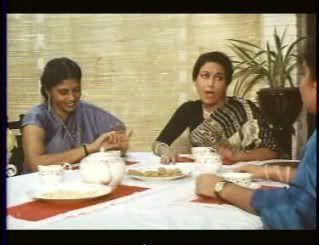
She is not impressed:
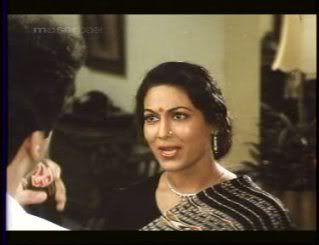
Seriously not impressed:
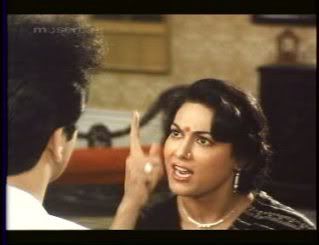
Before a decision is made on the relocation plans, there is good news: Priya is pregnant. Her husband is naturally very happy, and so is his mother, as the birth of a son in this family will finally lift a curse which has meant that there was first none and then only one surviving offspring in each of the past six generations. Of course, Priya's father is also very happy, but his joy also gives his son-in-law an opening to point out that a too close relation to one's grown-up offspring may not be good. Kumar is clearly surprised by this but also sees Ajay's point.
Honest, dear, anything you hear down there at the moment is just my digestion:
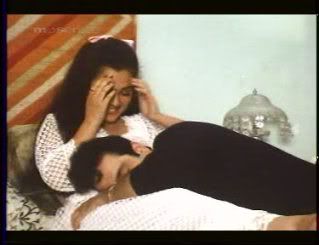
Happy!
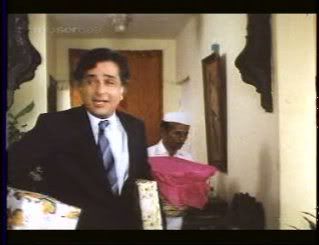
Not any longer:
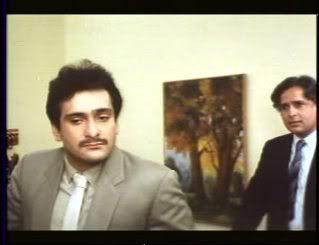
Some days later, Priya's father phones on a day when she is meant to take her mother-in-law to the hospital for a check up and as he has a headache, she goes to see him and forgets all about her mother-in-law. When she comes back, her husband is more than upset, his mother's appointmant can't be rescheduled for another month (quite why she couldn't go by herself is beyond me, she isn't an invalid) and why does Priya spend so much time with her father? Priya is so upset she runs away to her father's house. He goes over to Ajay's to apologise on his daughter's behalf, as she is too young to understand what she is doing by constantly putting her father first. Ajay is unwilling to forgive her until she has understood what it means to be a wife. Her father then proceeds to throw her out of the house, as married daughters are only guests and shouldn't outstay their welcome (I am not sure how this will teach her what it means to be a wife, or how it will help her to overcome her being overly close to her Dad). Priya, in her usual level-minded and moderate way, decides to break off all relations with her Dad.
Life is hard, when
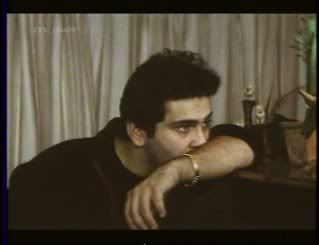
you are outcharmed by your middle-aged uncle:
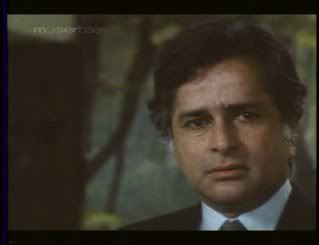
dramatic staircase standing:
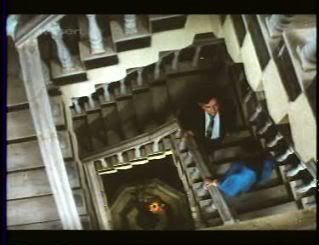
Of course, Ajay's mother uses her golden chance and the whole family relocates to London. Kumar also sticks to his resolve to now be a strict father and doesn't say good-bye to Priya at the airport though he is there and mopes behind a column. What will happen next? Will Kumar cope well with his daughter's absence and maybe have a life?
Hmmm:
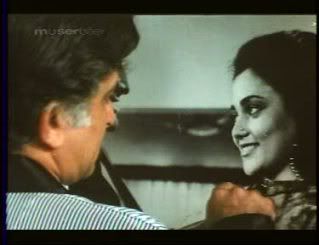
Will his health cope? Will Priya have the first uncomplicated pregnancy in movie-land? And will somebody actually talk to her about father-daughter/husband-wife relations, rather than shout to her about it? What about the family curse? Will Krishna turn up again?
And how come a married woman is wearing a short-sleeved dress?????
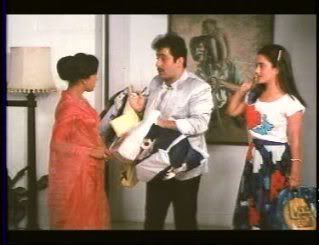
As I said at the start, I like this sort of thing and I enjoyed the particular portion of cheese. I should probably record that my fellow watcher, Bollyviewer, turned round at the end and asked me: "You watch this sort of thing for fun?" Yes, I do. The story moves along fairly swiftly, the songs aren't too unbearable, and people didn't live in impossible mansions. If you like cheese and/or Shashi even in his middle-aged form, it's well worth a watch, and Rajeev is less of a clown here than in Zabardast, for which I was sincerely grateful.


